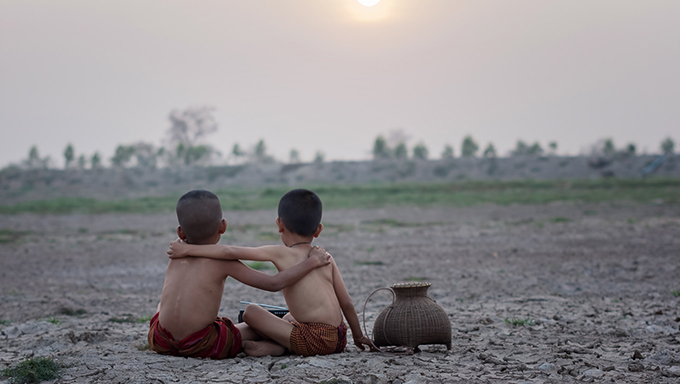 Our children are growing up in a volatile climate. It’s already damaging their health, wealth and well-being. Universities can be leaders in helping young people gain the knowledge they need to navigate this uncertain future. Curious Climate Schools, a project that connects young people directly with experts who can answer their climate questions, is a model for just this kind of leadership.
Universities across the globe come together this week to support climate action leadership in their communities as part of Global Climate Change Week. In Tasmania, our Curious Climate Schools project has connected over 1,000 school students, aged 10-18, with 57 climate researchers from diverse disciplines to answer students’ questions.
Climate change will increasingly affect our children’s lives, even if we take the profound action needed this decade to avert the worst of it. Young people will need to be climate-literate for the world they are inheriting. Although learning about climate change is established as vital in enhancing understanding and action, climate literacy education is not mandated in the Australian Curriculum.
Our aim is to empower children to develop essential climate knowledge through student-led enquiry. Our experts’ answers to questions from schools across the state will be made public on the Curious Climate Schools website on November 1. This will coincide with the COP26 climate summit, connecting local and global climate leadership.
Our children are growing up in a volatile climate. It’s already damaging their health, wealth and well-being. Universities can be leaders in helping young people gain the knowledge they need to navigate this uncertain future. Curious Climate Schools, a project that connects young people directly with experts who can answer their climate questions, is a model for just this kind of leadership.
Universities across the globe come together this week to support climate action leadership in their communities as part of Global Climate Change Week. In Tasmania, our Curious Climate Schools project has connected over 1,000 school students, aged 10-18, with 57 climate researchers from diverse disciplines to answer students’ questions.
Climate change will increasingly affect our children’s lives, even if we take the profound action needed this decade to avert the worst of it. Young people will need to be climate-literate for the world they are inheriting. Although learning about climate change is established as vital in enhancing understanding and action, climate literacy education is not mandated in the Australian Curriculum.
Our aim is to empower children to develop essential climate knowledge through student-led enquiry. Our experts’ answers to questions from schools across the state will be made public on the Curious Climate Schools website on November 1. This will coincide with the COP26 climate summit, connecting local and global climate leadership.
What do young people want to know?
Students have submitted questions to our project that range from the global to the local. Key themes in their questions included:- who is responsible?
- how urgent is action?
- how do we adapt and care for the planet and its future inhabitants?
- why aren’t politicians listening?
Thousands of students around the world are taking the day off school today to call on world leaders to take more action on climate change. ???? @StrikeClimate #ClimateStrike https://t.co/XR68dvWR2A
— Australian Conservation Foundation (@AusConservation) October 14, 2021
A way to counter climate anxiety
The current silence on climate in schools’ teaching is bad for children’s mental health. Research has established that speaking about climate change is an important first step in easing legitimate climate anxiety. Education that enables students’ agency through climate literacy could reduce the mental health burden on young people. We need climate-literate young people. Empowering them to talk about climate change could both improve their mental health and help to build the engaged citizenry and leadership we need to face the climate crisis. Acknowledging that children have a stake in climate action and decision-making is vital. Without this, they feel disempowered and frustrated. We saw this in some of the questions submitted to Curious Climate Schools. “Do you believe that we as the future leaders are being heard enough? For example, Scott Morrison or the other politicians, are they listening?”
Students wonder if Prime Minister Scott Morrison and other politicians are listening to their concerns. Lukas Coch/AAP